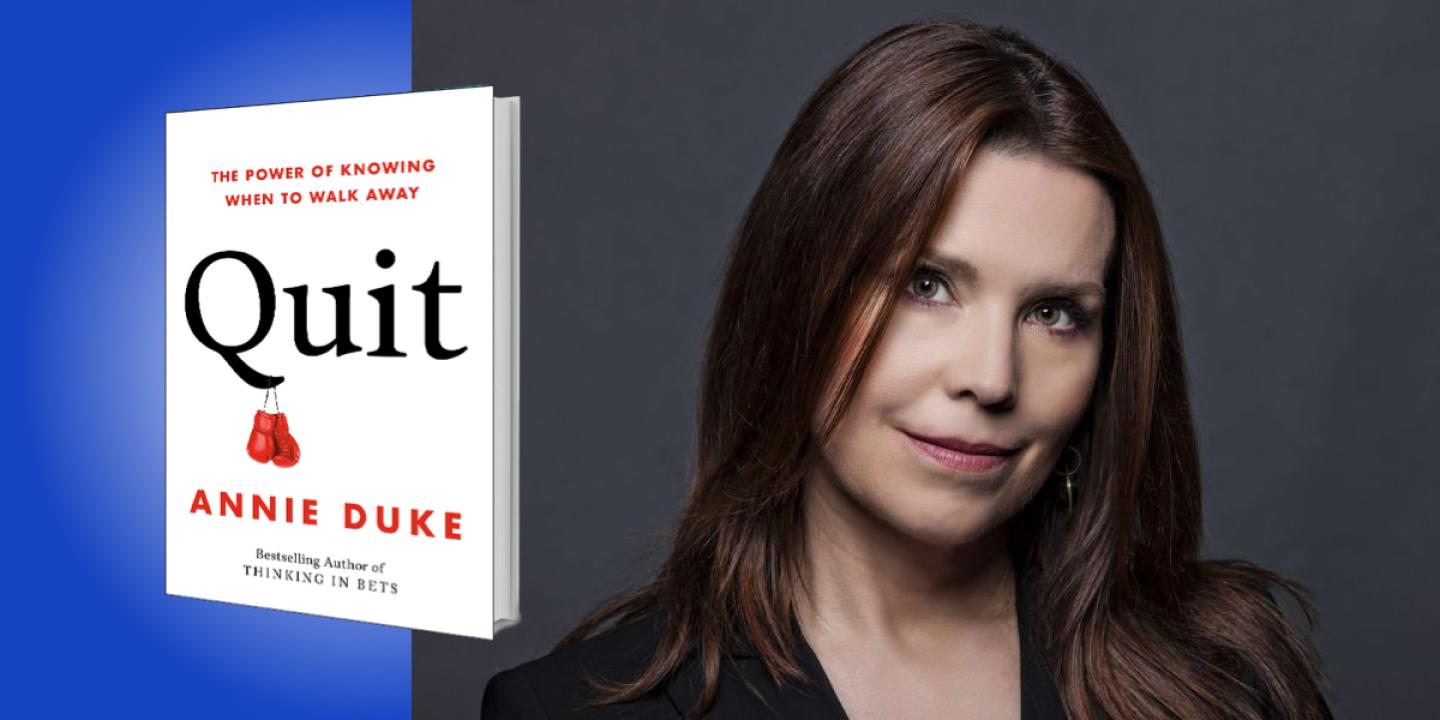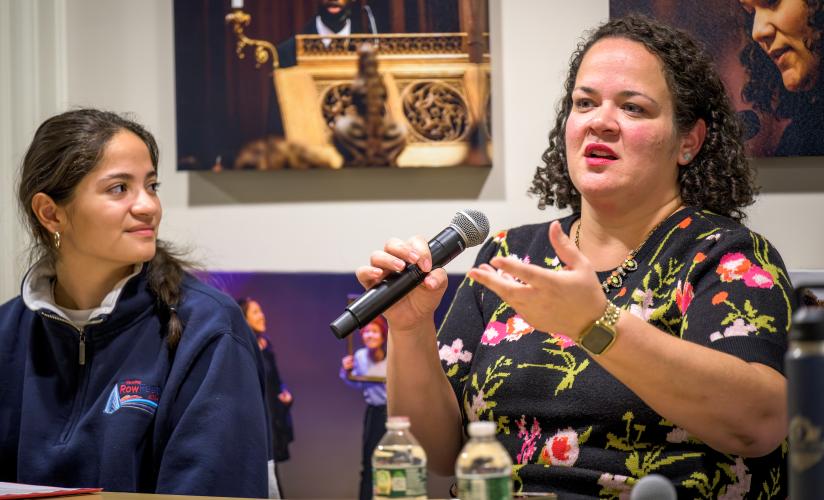

A conversation with Annie Duke ’83
BY MICHAEL MATROS
In your book, you write that life’s too short to spend your time on something that’s not worthwhile. That sounds like a reasonable philosophy, but knowing when to quit a project seems to elude us so often.
It’s hard. You want to have a dead certainty that there’s no other choice before you’re willing to walk away.
Yes, like the Everest climbers in your book who didn’t quit when their schedule said they should. That’s something you discussed in depth on your Decision Education podcast with Dr. Ken Kamler, an expedition climber who’s also an “extreme medicine doctor” and provided insight on the 1996 disaster based on his own perilous expeditions on Mount Everest as well as his clinical experience with making life-or-death decisions.
When you’re at the point where it’s already a dead certainty, that’s way too late. You should’ve quit way before it. Right? So, I’m just trying to say, look, you’re not ever going to know. It’s going to be impossible to quit at the exact right time, but I’m going to try to get you closer because mostly – not always, but mostly – you’re getting to the decision way too late. The opportunity costs associated with that delay are so high.
The opportunity cost for those climbers was not to live longer. In the book you say, “Quitting requires being okay with not knowing what might have been.”
You can’t ever know when the exact right time to quit is. It’s kind of impossible. So, you could quit something that would’ve ended up working out.
Some readers of Angela Duckworth’s book “Grit: The Power and Passion of Perseverance” might think she’s saying, “just stick with it no matter what.” Like the Little Engine That Could.
Angela’s book is fantastic, and it’s particularly relevant for kids. Just because something’s hard — algebra is really hard — doesn’t mean you should quit it. You have to be able to power through those things in order to get to a goal that’s worthwhile. So sure, I agree with that. What she wasn’t saying was that the quality of sticking to some things alone is going to create success. In fact, Angela is very clear that sometimes you’re supposed to quit things that aren’t working, so that you can stick to things that really are worthwhile no matter how hard they are.
Are you able to quit things in your daily life? What about TV shows or books? Do you have a formula for those?
So, with a television show, I’ll usually give it a couple of episodes. I sort of have a deadline around it. I do that with books too. The signal for me is, how eager am I to pick it back up?
Your books advise adults how to be better decision-makers. But the nonprofit you co-founded, The Alliance for Decision Education, creates structures to help kids learn better decision-making skills.
There’s tons and tons of research that’s been done on this as far as adults are concerned, but what we said was, OK, that’s great, but shouldn’t someone be learning it before they’re 30? It’ll be really good if we began teaching kids to be better decision-makers starting in kindergarten. What we’re trying to do at the Alliance is give kids two things: How to figure out what’s true, and then how to know what to do.



